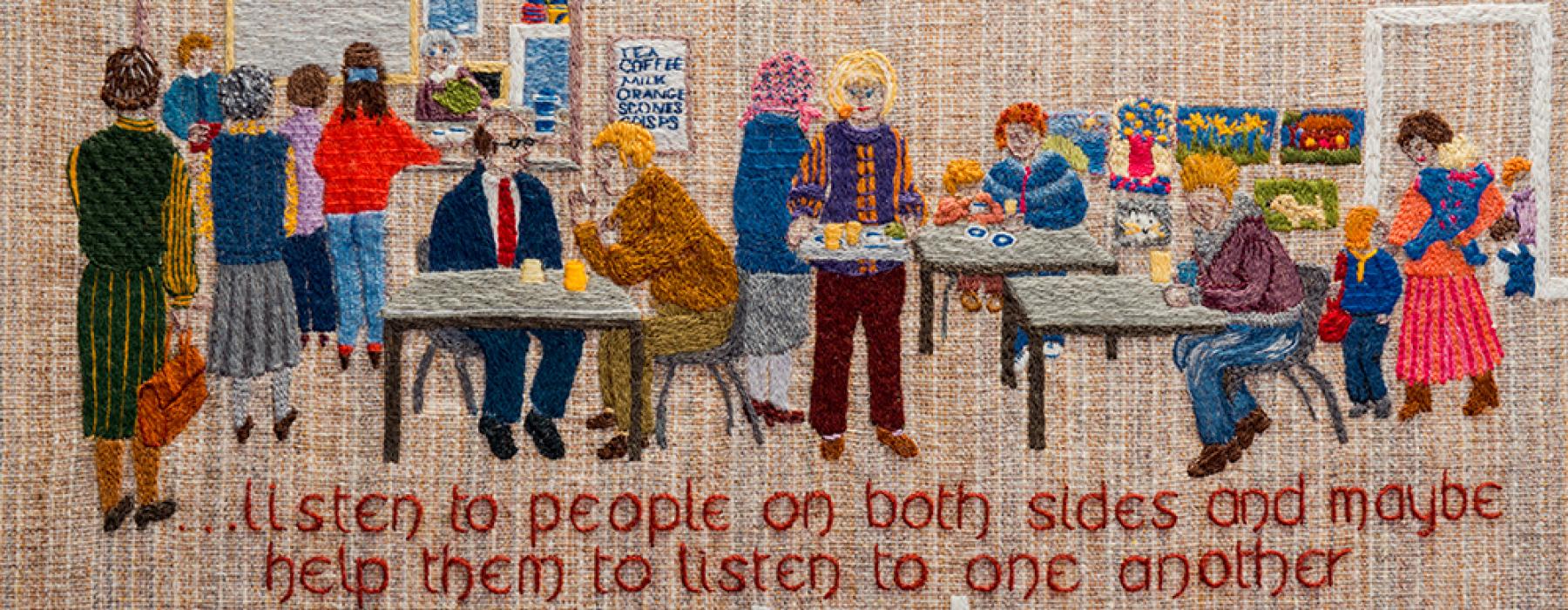
International Action
Service is love in action
At the heart of Quaker belief is the idea that true service is love in action. Around the world, Friends (Quakers) are quietly yet powerfully working to bring peace, justice and humanitarian support to communities in need.
Quakers play a role in conflict resolution and peacebuilding in regions affected by war and violence. Through organisations like the Quaker United Nations Office (QUNO) in Geneva and New York, Friends practice “quiet diplomacy” — creating respectful, inclusive spaces where people in conflict can listen, understand, and work toward peaceful solutions. In parts of Africa, the Quaker Peace Network runs programmes that resolve conflicts and promote reconciliation and healing.
Quaker involvement extends to defending the dignity of every person. Friends work to challenge racial injustice, support gender equality, and uphold the rights of refugees, migrants, and people experiencing homelessness. Internationally, The Friends World Committee for Consultation (FWCC) and other Quaker groups connect and strengthen local efforts to address social justice issues wherever they arise.
Caring for the Earth is central to Quaker witness. Through advocacy at the United Nations and other global forums by the Quaker United Nations Office (QUNO), Quakers push for stronger commitments to tackle climate change and protect our shared environment. In partnership with local communities, Quaker-supported projects help promote sustainable agriculture and resilience in developing regions. For example, the Quaker Service Australia (QSA) runs programs in Cambodia and Uganda that focus on sustainable farming practices and community resilience.
Education and capacity building are key parts of Quaker international action. Friends help establish and support schools and training programmes — from quality schooling in Ramallah, Palestine to Friends Theological College providing theological education for emerging leaders in Kenya — empowering individuals and communities to grow and thrive by providing vocational training and supporting small-scale enterprises.
Beyond immediate relief, Quakers focus on long-term recovery and resilience. Whether in crisis zones or underserved regions, Friends aim to support sustainable futures where people can rebuild with dignity and hope.
To find out more about the many projects currently being undertaken by Quakers around the world visit:
This is an English / Korean / Japanese / Hindi / Tagalog / Cebuano working draft version of an eventual multilingual FWCC Asia Pacific Advices and Queries, to be finalised at the 2030 section gathering.
Click here for a PDF version.